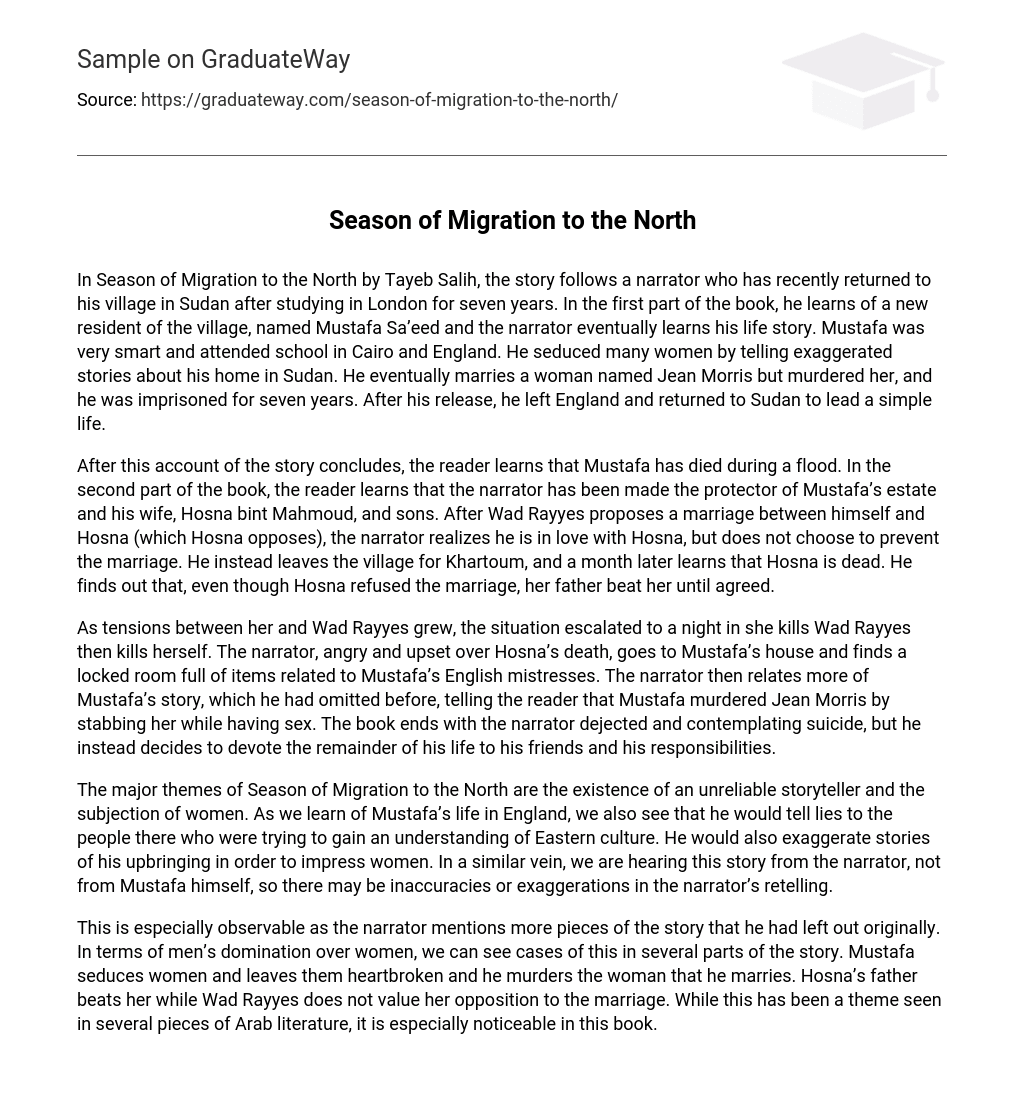In Season of Migration to the North, the story follows a narrator who has recently returned to his village in Sudan after studying in London for seven years. In the first part of the book, he learns of a new resident of the village, named Mustafa Sa’eed and the narrator eventually learns his life story. Mustafa was very smart and attended school in Cairo and England. He seduced many women by telling exaggerated stories about his home in Sudan. He eventually marries a woman named Jean Morris but murdered her, and he was imprisoned for seven years. After his release, he left England and returned to Sudan to lead a simple life.
After this account of the story concludes, the reader learns that Mustafa has died during a flood. In the second part of the book, the reader learns that the narrator has been made the protector of Mustafa’s estate and his wife, Hosna bint Mahmoud, and sons. After Wad Rayyes proposes a marriage between himself and Hosna (which Hosna opposes), the narrator realizes he is in love with Hosna, but does not choose to prevent the marriage. He instead leaves the village for Khartoum, and a month later learns that Hosna is dead. He finds out that, even though Hosna refused the marriage, her father beat her until agreed.
As tensions between her and Wad Rayyes grew, the situation escalated to a night in she kills Wad Rayyes then kills herself. The narrator, angry and upset over Hosna’s death, goes to Mustafa’s house and finds a locked room full of items related to Mustafa’s English mistresses. The narrator then relates more of Mustafa’s story, which he had omitted before, telling the reader that Mustafa murdered Jean Morris by stabbing her while having sex. The book ends with the narrator dejected and contemplating suicide, but he instead decides to devote the remainder of his life to his friends and his responsibilities.
The major themes of Season of Migration to the North are the existence of an unreliable storyteller and the subjection of women. As we learn of Mustafa’s life in England, we also see that he would tell lies to the people there who were trying to gain an understanding of Eastern culture. He would also exaggerate stories of his upbringing in order to impress women.
In a similar vein, we are hearing this story from the narrator, not from Mustafa himself, so there may be inaccuracies or exaggerations in the narrator’s retelling. This is especially observable as the narrator mentions more pieces of the story that he had left out originally. In terms of men’s domination over women, we can see cases of this in several parts of the story.
Mustafa seduces women and leaves them heartbroken and he murders the woman that he marries. Hosna’s father beats her while Wad Rayyes does not value her opposition to the marriage. While this has been a theme seen in several pieces of Arab literature, it is especially noticeable in this book.





